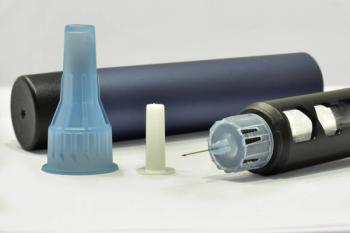
Discontinuation Rates for Biosimilars Are High But Similar to Rates for Reference Biologics
The review focused on Remicade (infliximab) and Enbrel (etanercept). The annualized discontinuation rate was 21% among patients who had undergone nonmedical switching to biosimilars. However, the rates were similar to those found in some separate analyses of patients on reference biologics.
The review focused on Remicade (infliximab) and Enbrel (etanercept). The annualized discontinuation rate was 21% among patients who had undergone nonmedical switching to biosimilars. However, the rates were similar to those found in separate analyses of patients on reference biologics.
A review of multiple studies of anti–tumor necrosis factor (TNF) biosimilars has found high discontinuation and switchback rates, although the authors suggest these rates are comparable to those for patients treated only with reference products.
The review, which was
For example, Enbrel (etanercept) and Humira (adalimumab) biosimilars were first approved in Europe in 2016 and 2017, respectively. Biosimilars of these biologics are not yet available in the United States.
The authors focused their review on biosimilars of Remicade (infliximab) and Enbrel, which are used for treatment of rheumatologic and gastroenterologic conditions. Based on 62 prospective and retrospective studies, the annualized discontinuation rate was 21% among patients who had undergone nonmedical switching to biosimilars.
By therapeutic area, the discontinuation rates were 26% and 17% for rheumatology and gastroenterology, respectively. The average time to discontinuation was six months across 10 studies that reported this information.
The rate at which patients on biosimilars switched back to reference products was 14%, based on data from 29 studies. By therapeutic area, the switchback rate was 17% and 8% for patients receiving rheumatologic and gastroenterologic care, respectively.
The authors also measured the incremental discontinuation rate — the difference in discontinuation rates between patients who underwent nonmedical switching to biosimilars and those who stayed on reference products.
This rate was 18% across all therapeutic areas, “indicating a significantly higher discontinuation rate among switchers than non-switchers,” Liu and colleagues wrote.
Although results varied widely across studies included in the review, the overall findings were not markedly different when compared with discontinuation rates reported in separate analyses of patients on reference biologics alone.
These discontinuation rates (for patients on reference products) were 21%, 37%, and 52% for the 6-month, 2-year, and 4-year treatment intervals, respectively.
“Switching from a TNF inhibitor to its biosimilar for nonmedical reasons was found to be associated with a high prevalence rate of biosimilar discontinuation due to treatment failure or adverse events, and a high switchback rate, but comparable with the yearly discontinuation rate of the original TNF inhibitor,” wrote the researchers
They said strong patient education that includes discussion of the nocebo effect could be valuable in reducing discontinuation and switchbacks. The nocebo effect is like the placebo but rather than ascribing benefit from an intervention related to a belief that it works, people ascribe negative consequences because of prior beliefs about side effects and lack of efficacy.
“Healthcare providers should educate patients about the efficacy of biosimilars in layman’s terms and avoid technical jargon and ambiguous statements,” they wrote.
At the time of the study, no U.S. biosimilars had achieved the interchangeable designation, which requires clinical studies demonstrating no difference in outcomes for patients switched between reference and biosimilars multiple times.
“Some physicians believe that small changes in these patients’ overall treatment regimens, which are often established after multiple rounds of trial and error, may have unwanted negative effects,” Liu and colleagues observed.
Newsletter
Pharmacy practice is always changing. Stay ahead of the curve with the Drug Topics newsletter and get the latest drug information, industry trends, and patient care tips.






















